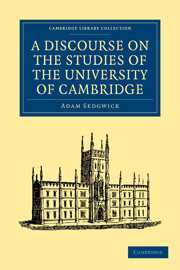Summary
Pantheistic views of Revelation and its Evidences, and comments on the Newtonian Philosophy–Evidences of Christianity historical and prophetical–Moral purity of the Gospel–Its propagation, and effects on the progress of man, &c.–Arguments from Analogy.
It would indeed be a vain and useless task were I to attempt a discussion of the general evidences of Christianity within the compass of this Preface. They separate themselves into many distinct provinces of philosophy and learning, each of which might require a large volume for its illustration. For such a task I have neither leisure, nor capacity, nor sufficient knowledge. One or two points only will I now touch upon, as they seem to arise quite naturally out of the previous discussions through which I have done my best to be the student's guide.
In every part of human knowledge–physical, social, moral, and religious–we are almost compelled, during at least one portion of our life, to take our principles for granted. There is no help for this; and we could not advance without it. We must take for granted that the great principles we cannot work out for ourselves (as least during our early years), have been laid on sure foundations by those who have gone before us; and there are multitudes of good and useful men who have neither leisure nor capacity for any profound examination of their principles.
- Type
- Chapter
- Information
- A Discourse on the Studies of the University of Cambridge , pp. cclvi - ccccxliiPublisher: Cambridge University PressPrint publication year: 2009First published in: 1833



